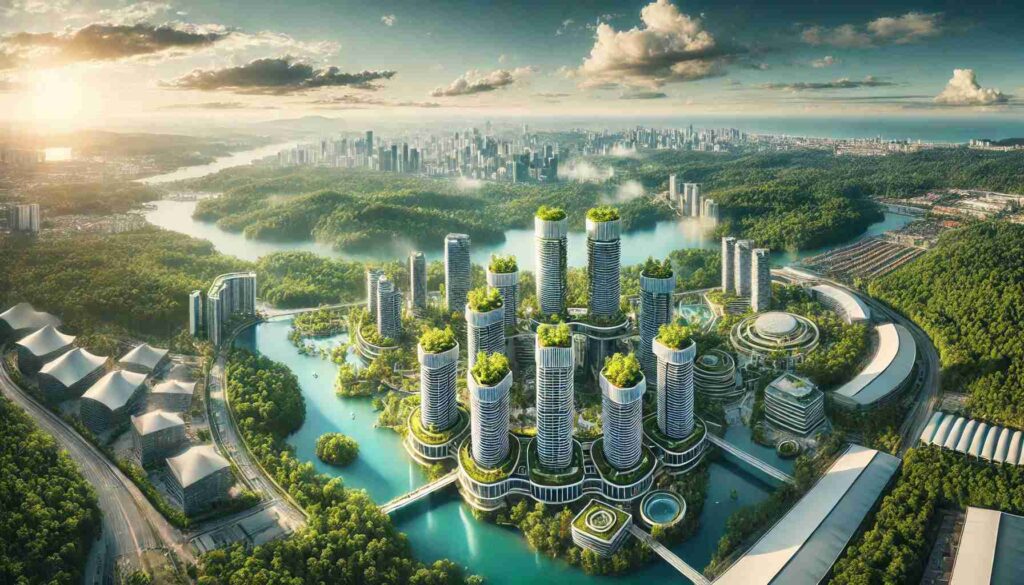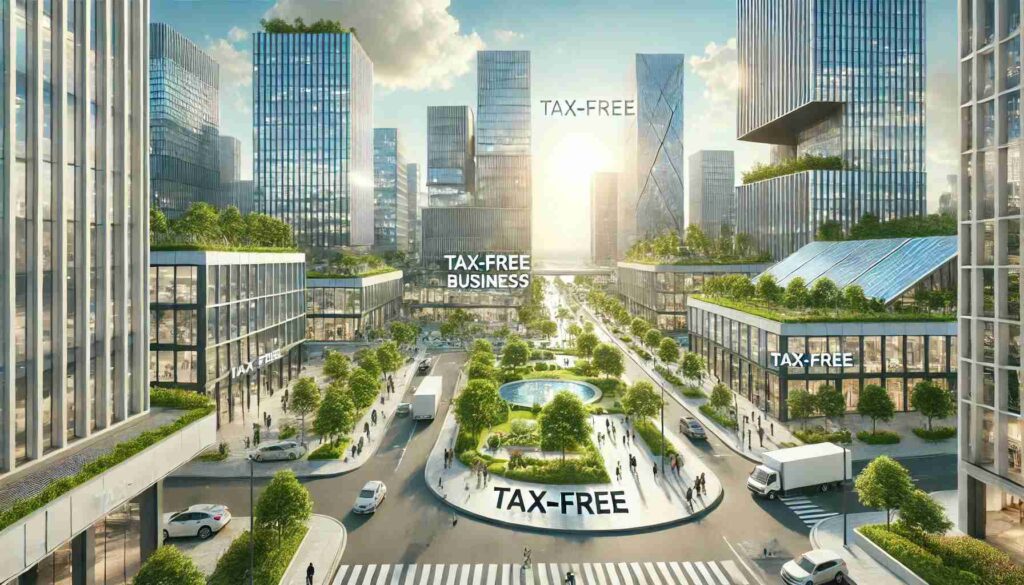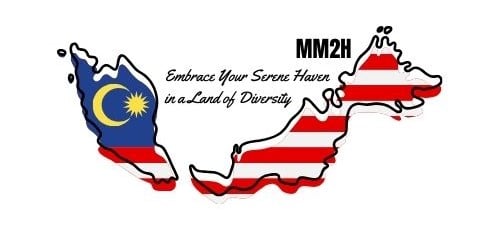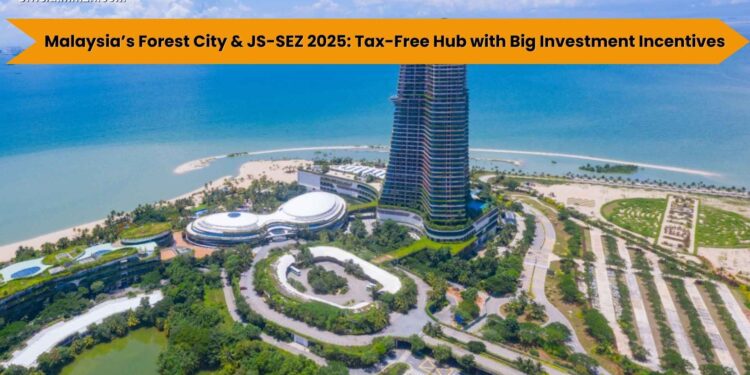Malaysia Forest City: From Ghost Town to Global Investment Hub in 2025

Malaysia’s ambitious Forest City in Johor, once a promising luxury enclave, faced a rocky path but is now set for a potential revival. By introducing sweeping tax incentives and partnering with Singapore to establish the Johor-Singapore Special Economic Zone (JS-SEZ), Malaysia is making strides to position Forest City as a tax-free investment hub for 2025. This initiative not only aims to attract global investors but also to create high-income job opportunities, fostering economic growth in the region.
The Origins and Challenges of Forest City
Launched in 2013, Forest City was developed by China’s largest real estate company, Country Garden, with a staggering $100 billion investment. The project envisioned a high-end residential community featuring luxurious apartment towers, expansive malls, beautiful parks, and hotels, spread across man-made islands on the Straits of Johor between Malaysia and Singapore. The project aimed to capitalize on a wave of interest from Chinese investors looking for offshore real estate opportunities. However, unforeseen challenges transformed the ambitious development into what critics called a “ghost town.”
The project’s struggles were largely influenced by a changing global economic landscape, restrictive policies on offshore investments from China, and the impact of the COVID-19 pandemic. Adding to these woes, Country Garden, the developer, experienced significant financial strain, failing to pay millions in interest on offshore debts. This financial turmoil dampened investor confidence and halted further development, leaving Forest City only 15% complete as of mid-2023, with minimal occupancy in its largely empty streets and malls.
2025: A New Hope for Forest City

Despite these challenges, Malaysia has high hopes for the area’s revival, especially with the 2025 rollout of incentives as part of the Special Financial Zone (SFZ) at Forest City. This initiative includes significant tax breaks to make the area more attractive for foreign investors and skilled professionals. Companies setting up within the SFZ could enjoy tax rates as low as zero percent, while skilled workers relocating to Forest City will benefit from a special income tax rate of 15%, well below Malaysia’s standard tax rates.
Even more uniquely, Forest City will become Malaysia’s first zone offering a zero percent tax rate specifically for family offices, which are private firms that manage the wealth of high-net-worth individuals and families. Malaysia’s Finance Minister, Amir Hamzah Azizan, believes these incentives will transform Forest City into a “magnet for international capital,” attracting investment from across the globe.
The Johor-Singapore Special Economic Zone (JS-SEZ)
To further support this vision, Malaysia and Singapore have developed the Johor-Singapore Special Economic Zone (JS-SEZ), which aims to deepen economic ties and promote cross-border investment. On November 5, 2024, key policies for the JS-SEZ were finalized in a high-profile meeting at Malaysia’s Parliament, chaired by Deputy Prime Minister Datuk Seri Fadillah Yusof. The meeting discussed critical priorities, economic sectors, and investment areas within JS-SEZ, setting a clear blueprint for the future.
Johor’s Menteri Besar, Datuk Onn Hafiz Ghazi, described the JS-SEZ as a landmark initiative that could reshape the economy of both Johor and Malaysia. He emphasized that JS-SEZ, by fostering economic collaboration with Singapore, would create high-income jobs, attract foreign investment, and bring new economic vitality to the region. This ambitious blueprint aims to solidify Johor’s reputation as a global investment destination and to elevate the standard of living for Johor residents by 2030.
Onn Hafiz noted that this “milestone meeting” represents a crucial step towards turning the vision for Johor and Forest City into a reality. He emphasized that a comprehensive framework is in place to ensure smooth execution across all phases, with final agreements between Malaysia and Singapore set to be signed at the 11th Malaysia-Singapore Leaders’ Retreat on December 9, 2024.
The Strategic Location and Advantages of Forest City
Forest City’s location just across the border from Singapore, one of Asia’s most prominent financial hubs, offers substantial strategic benefits. Historically, Johor and Singapore have maintained close economic ties, with many Johor residents commuting daily to work in Singapore. The Malaysian government sees Forest City as a natural extension of this economic corridor, especially with the potential revival of the high-speed rail (HSR) project linking Kuala Lumpur and Singapore. This project, strongly supported by Malaysia’s current King, Sultan Ibrahim Iskandar, who is also the Sultan of Johor, would significantly boost accessibility, making Johor an attractive destination for Singapore-based investors and professionals seeking a lower cost of living.
Lee Ting Han, Johor’s state investment official, emphasized that Forest City’s status as a duty-free island, combined with strong infrastructure, will further enhance its appeal to international investors. As the state works to integrate JS-SEZ into Malaysia’s broader economic framework, officials see the collaboration with Singapore as a vital step toward creating an economically vibrant region.
Malaysia’s Vision 2030 and Forest City’s Role

The JS-SEZ and SFZ initiatives align closely with Johor’s Vision 2030, which aims to transform Johor into a developed region within the next decade. According to Menteri Besar Onn Hafiz, the state government views the zone as a critical catalyst for sustainable growth, attracting international investors and elevating Johor’s status as a progressive and economically viable destination. By 2030, Johor’s leadership hopes to see Forest City as a thriving financial and residential hub that significantly contributes to Malaysia’s GDP.
In addition to these development efforts, the Johor state government plans to introduce even more incentives to stimulate economic activity within JS-SEZ and Forest City, with specific initiatives to be announced during the 2025 Johor Budget presentation on November 21. This upcoming budget will outline additional measures to enhance the zone’s global competitiveness, attract foreign investments, and ensure that all necessary infrastructure is in place to support growth.
Future Outlook: Challenges and Opportunities
While these bold initiatives mark an exciting new chapter for Forest City, there are still challenges to address. Business consultant Carmelo Ferlito, from the Center for Market Education, notes that Forest City was initially designed as a luxury residential area rather than a commercial hub, which could present obstacles in fully transforming it into an economic zone. Additionally, Country Garden’s financial struggles have left a lingering sense of caution among investors.
However, Forest City’s proximity to Singapore, combined with the incentives offered under the SFZ and JS-SEZ, gives it unique advantages. With support from both federal and state stakeholders, Forest City and the JS-SEZ have the potential to serve as a transformative economic corridor that benefits Malaysia and Singapore alike. As Malaysia works to attract new capital and skilled talent, Forest City’s evolution from an underused development into a thriving investment hub could be just around the corner.
Conclusion: A New Beginning for Forest City
Malaysia’s vision for Forest City and the JS-SEZ represents a forward-looking approach to economic development, one that leverages location, international partnerships, and innovative incentives to drive growth. With strategic plans, substantial tax breaks, and high-level support, Forest City is on the path to becoming a global hub for investment and opportunity. Whether it can fully escape the “ghost town” label remains to be seen, but with 2025 on the horizon, Johor’s Forest City might finally fulfill its original promise.




